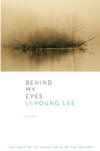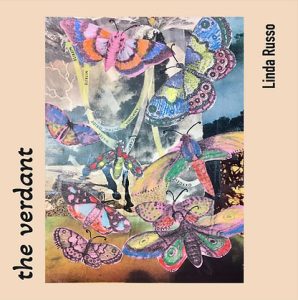Behind My Eyes
Li-Young Lee’s fourth collection of poetry is an elegiac march through a landscape of prayer, death, love, the eternal strife of family relations and the omnipresent political realities that come with the immigrant identity. More than any other theme, the status of the displaced illuminates these mysterious and evasively simplistic poems.
Li-Young Lee’s fourth collection of poetry is an elegiac march through a landscape of prayer, death, love, the eternal strife of family relations and the omnipresent political realities that come with the immigrant identity. More than any other theme, the status of the displaced illuminates these mysterious and evasively simplistic poems.
In “Self Help for Fellow Refugees,” an integral part of the first section of this work, the author imparts advice of a personal nature to other incoming immigrants to this country that encompasses the trials of motherhood. It asks what dignity is lost, what secrets are kept, to protect ones’ children.
If you happen to have watched armed men
beat and drag your father
out the front door of your house
and into the back of an idling truck
before your mother jerked you from the threshold
and buried you in her skirt folds,
try not to judge her too harshly.
Don’t ask her what she thought she was doing
turning a child’s eyes
away from history
and towards that place all human aching starts.
As readers we are presented with lines that resonate around the complicated issues of motherhood and fatherhood: How do we define the transient qualities of creation? Where will the depths of love for our creator take us? When we are listening to our own thoughts, are they merely reflections inspired by the words we were raised on?
In the last stanza of “Mother Deluxe,” Lee celebrates his first night on earth, a night he could only imagine and never possibly remember: “Good Boat, first boat, old boat, Mother / my first night with you lasted nine months. / Our second night together is the rest of my life.” In this poem about motherhood, and in the poem “Have You Prayed” about his father, there is a worshipful remembrance of the past: “When the wind turns traveler / and asks, in my father’s voice, Have you prayed? / I remember three things. One: a father’s love / is milk and sugar / two-thirds worry, two-thirds grief, and what’s left over / is trimmed and leavened to make the bread / the dead and the living share.” The world of the deceased and the living converge until they are forced to share in the sorrow of the other.
In the collection’s second part, Lee confronts childhood, death and the role of the apple in the Biblical creation myth, especially in conjunction with how we define motherhood and fatherhood. In “First World,” he addresses his sister: “Sister, we died in childhood, remember? / Toward all of sky we perished so completely / our mother cried, ‘Where are my little ones?’” In this poem, death is a transient being that can morph into whatever concept or object it so chooses. In “Mother’s Apple,” the main character is his “mother’s apple and that’s that.” In “Father’s Apple” he is told by his father that “He won’t always be an apple. / Descended from a book / that is my chief end, he says.” Here, the biblical myth of Adam and Eve and the forbidden apple is given an allegorical twist, until it becomes, in “The Apple Elopes,” a narrator ripened, a living flesh from which there is no returning.
In the final section’s “God Seeks a Destiny,” a “child climbs into the apple tree / and can’t get down / and can’t cry out for fear / he’ll wake the baby inside the house,” and by the third stanza of “Virtues of the Boring Husband,” the husband character has become a kind of god himself, eventually lulling his wife to sleep with his droning narrative.
The audience, like the poem’s wife, will be ready to rest by now, hypnotized by the prophetic truths of the narrator, but before we close our eyes we too will be comforted by the memories that remind us that we have lived, loved, faced death and reconciled the conflicted teachings that our parents have passed on to us. There are certainly still mysteries left to uncover, giving us a reason to look forward to Lee’s next collection, which will hopefully be just as subtle, precise, and instructive as Behind My Eyes is.





